Please note that times and session information in the Agenda at a Glance may change or be updated. Please visit this page for the most up to date information.
7:45 am – 8:30 am
Symposium Registration – Regency Foyer
8:30 am – 10:15 am
Opening Session – Regency FGH – Ballroom Level
Fred Sandoval, MPA
NLBHA Executive Director
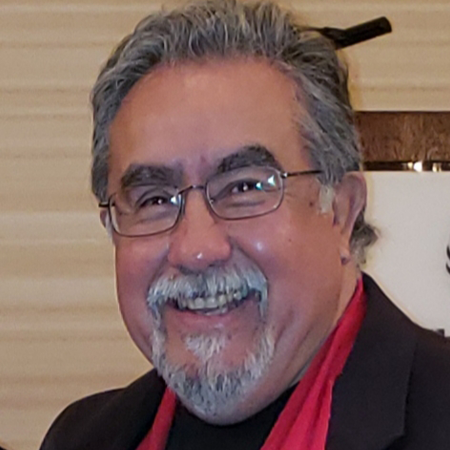 Fred has over 34 years professional experience in health and human services. Fred served as the President of the National Latino Behavioral Health Association, where he currently works as the Executive Director. He served as a member of the SAMHSA Health Care Reform Community of Practice advising on effective outreach and enrollment of uninsured Latinos. Fred served on the National Council of La Raza Affiliate Council. He was formerly appointed by Governor Bill Richardson as the Deputy Secretary of Health and Income Support Division Director for the State of New Mexico and was the alternate to the U.S.-Mexico Border Health Commission. He served as First Vice President of the National Alliance on Mental Illness (NAMI) in Arlington, VA. Fred worked as the Human Service Planning Supervisor for the City of Santa Fe overseeing CDBG and human services programs. Fred met with and participated in President George W. Bush’ announcement of the New Freedom Commission in Albuquerque, NM and served on the National Latino Mental Health Congress during the President Clinton administration. He has served on numerous national, regional and community boards, councils, commissions and committees. He is a nationally recognized trainer and consultant on culturally informed practices. He received his Masters in Public Administration from Northern Arizona University in 1992 and his Bachelors of University Studies from the University of New Mexico in 1980. He has received the SAMHSA Administrator Award, the Cerro Grande Fire Hero Award, the Con Alma Health Foundation Health Hero Award and numerous national recognition for his work in and with Latino communities. His technical skills include data research and analysis, program evaluation, planning and community needs assessments, policy research and analysis, program development, budget preparation, business planning, environment scans, survey development & administration, and technical report writing.
Fred has over 34 years professional experience in health and human services. Fred served as the President of the National Latino Behavioral Health Association, where he currently works as the Executive Director. He served as a member of the SAMHSA Health Care Reform Community of Practice advising on effective outreach and enrollment of uninsured Latinos. Fred served on the National Council of La Raza Affiliate Council. He was formerly appointed by Governor Bill Richardson as the Deputy Secretary of Health and Income Support Division Director for the State of New Mexico and was the alternate to the U.S.-Mexico Border Health Commission. He served as First Vice President of the National Alliance on Mental Illness (NAMI) in Arlington, VA. Fred worked as the Human Service Planning Supervisor for the City of Santa Fe overseeing CDBG and human services programs. Fred met with and participated in President George W. Bush’ announcement of the New Freedom Commission in Albuquerque, NM and served on the National Latino Mental Health Congress during the President Clinton administration. He has served on numerous national, regional and community boards, councils, commissions and committees. He is a nationally recognized trainer and consultant on culturally informed practices. He received his Masters in Public Administration from Northern Arizona University in 1992 and his Bachelors of University Studies from the University of New Mexico in 1980. He has received the SAMHSA Administrator Award, the Cerro Grande Fire Hero Award, the Con Alma Health Foundation Health Hero Award and numerous national recognition for his work in and with Latino communities. His technical skills include data research and analysis, program evaluation, planning and community needs assessments, policy research and analysis, program development, budget preparation, business planning, environment scans, survey development & administration, and technical report writing.
Dr. Ruben J. Lozano
NLBHA Board President
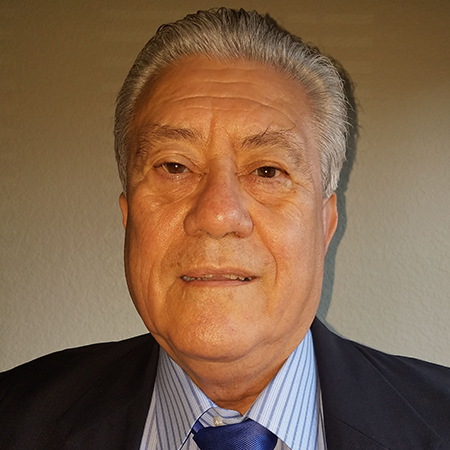 Dr. Lozano retired from public service in 2005 as Deputy Director of the State Department of Mental Health where he spent 27 of his 30-year career with the State of California. As Deputy Director, he was responsible for overseeing the development of Cultural Competence Standards for Mental Health Services provided by California’s 58 Counties. He then created Teams that reviewed each County for compliance with those standards. Dr Lozano was also responsible for Teams performing Fiscal Audits, the Pre-Admission Screening and Resident Review, and Licensing and Certification of Facilities providing mental health services. He continues to work as a contract Pharmacy Supervisor in the Department of State Hospitals-Napa Facility.
Dr. Lozano retired from public service in 2005 as Deputy Director of the State Department of Mental Health where he spent 27 of his 30-year career with the State of California. As Deputy Director, he was responsible for overseeing the development of Cultural Competence Standards for Mental Health Services provided by California’s 58 Counties. He then created Teams that reviewed each County for compliance with those standards. Dr Lozano was also responsible for Teams performing Fiscal Audits, the Pre-Admission Screening and Resident Review, and Licensing and Certification of Facilities providing mental health services. He continues to work as a contract Pharmacy Supervisor in the Department of State Hospitals-Napa Facility.
Opening Remarks
Honorable Xavier Becerra
United States Secretary of Health and Human Services (Pre-Recorded Message)
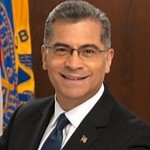 Xavier Becerra is the 25th Secretary of the Department of Health and Human Services and the first Latino to hold the office in the history of the United States. As Secretary, he will carry out President Biden’s vision to build a healthy America, and his work will focus on ensuring that all Americans have health security and access to healthcare.
Xavier Becerra is the 25th Secretary of the Department of Health and Human Services and the first Latino to hold the office in the history of the United States. As Secretary, he will carry out President Biden’s vision to build a healthy America, and his work will focus on ensuring that all Americans have health security and access to healthcare.
Throughout his career, the Secretary has made it his priority to ensure that Americans have access to the affordable healthcare they need to survive and thrive – from his early days as a legal advocate representing individuals with mental illness, to his role as the Attorney General of the state of California.
Secretary Becerra served 12 terms in Congress as a member of the U.S. House of Representatives. During his tenure, he was the first Latino to serve as a member of the powerful Committee on Ways and Means, he served as Chairman of his party’s caucus, and as the Ranking Member of the Ways and Means Subcommittee on Social Security and Ranking Member of the Subcommittee on Health.
For over two decades in Congress, Secretary Becerra worked so that every family had the assurance of care that his own family had when he was growing up. As a member of the Ways and Means Committee, Secretary Becerra introduced legislation — the Medicare Savings Programs Improvement Act of 2007 — that expanded cost-sharing subsidies for low-income seniors who receive both Medicare and Medicaid benefits by increasing the amount of resources they could receive. He championed provisions of the Medicare Improvements for Patients and Providers Act of 2008 that required physicians who perform imaging to be accredited and trained to ensure patient safety. And he was one of the original cosponsors of the Patient Protection and Affordable Care Act (ACA) which strengthened Medicare and lowered costs for seniors.
As Attorney General of the state of California, Secretary Becerra helped to promote competition by taking on a number of pharmaceutical companies that restricted competition through “pay-for-delay” schemes, held several companies accountable for legal violations for not protecting patients’ health information, and took action early in the pandemic to keep Californians safe by using his authority to protect workers from exposure to COVID-19, secure key safeguards for frontline health care workers’ rights, and take on fraudsters trying to take advantage of people during the pandemic. In addition, he cracked down on Medicare and Medicaid fraud, acted to combat the opioid crisis, including holding drug makers accountable, won an unprecedented $575 million antitrust settlement against one of the largest health systems in California, and he led the three-year federal court fight to save the ACA and with it, the protections of the 133 million Americans with preexisting conditions.
Born in Sacramento Secretary Becerra is the son of working-class parents. He was the first in his family to receive a four-year degree, earning his Bachelor of Arts in Economics from Stanford University. He earned his Juris Doctorate from Stanford Law School. His mother was born in Jalisco, Mexico and immigrated to the United States after marrying his father, a day laborer turned construction worker. He is married to Dr. Carolina Reyes, and he is proud of his three daughters: Clarisa, Olivia and Natalia, and son-in-law Ivan.
Opening Plenary
Nora D. Volkow, M.D.
Director of the National Institute on Drug Abuse (NIDA) (Pre-Recorded Message)
 Nora D. Volkow, M.D., is Director of the National Institute on Drug Abuse (NIDA) at the National Institutes of Health. NIDA is the world’s largest funder of scientific research on the health aspects of drug use and addiction. Dr. Volkow was born in Mexico and earned her medical degree from the National University of Mexico in Mexico City, where she received the Robins Award for the best medical student of her generation. Her psychiatric residency was at New York University, where she earned a Laughlin Fellowship from The American College of Psychiatrists as one of 10 outstanding psychiatric residents in the United States.
Nora D. Volkow, M.D., is Director of the National Institute on Drug Abuse (NIDA) at the National Institutes of Health. NIDA is the world’s largest funder of scientific research on the health aspects of drug use and addiction. Dr. Volkow was born in Mexico and earned her medical degree from the National University of Mexico in Mexico City, where she received the Robins Award for the best medical student of her generation. Her psychiatric residency was at New York University, where she earned a Laughlin Fellowship from The American College of Psychiatrists as one of 10 outstanding psychiatric residents in the United States.
Dr. Volkow’s work has been instrumental in demonstrating that drug addiction is a brain disorder. As a research psychiatrist, Dr. Volkow pioneered the use of brain imaging to investigate how substance use affects brain functions. Her studies have documented how changes in the dopamine system affect the functions of brain regions involved with reward and self-control in addiction. She has also contributed important to the neurobiology of obesity, ADHD, and aging.
Symposium Blessing
Dr. Manuel X. Zamarripa, LPC-S
Co-Director/Founder of the Institute of Chicana/o/x
Psychology
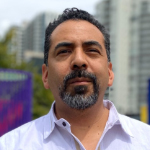 Manuel X. Zamarripa is the co-director and co-founder of the Institute of Chicana/o/x Psychology based in Austin, TX where he conducts community workshop platicas as well as professional development training for educators and mental health professionals on issues related to Chicana/o/x wellness, cultural identity, and mental health from a Chicana/o/x framework. Manuel’s publications and presentations in psychology and education focus on Chicana/o/x well-being, racial responsiveness, cultural revitalization, social justice, and leadership. Chicano Psychologist, Dr. Zamarripa, is a licensed professional counselor and supervisor (Texas) and received his doctorate in Counseling Psychology from the University of Wisconsin-Madison, his master’s in counseling psychology from Our Lady of the Lake University, and his bachelor’s in psychology from the University of Notre Dame.
Manuel X. Zamarripa is the co-director and co-founder of the Institute of Chicana/o/x Psychology based in Austin, TX where he conducts community workshop platicas as well as professional development training for educators and mental health professionals on issues related to Chicana/o/x wellness, cultural identity, and mental health from a Chicana/o/x framework. Manuel’s publications and presentations in psychology and education focus on Chicana/o/x well-being, racial responsiveness, cultural revitalization, social justice, and leadership. Chicano Psychologist, Dr. Zamarripa, is a licensed professional counselor and supervisor (Texas) and received his doctorate in Counseling Psychology from the University of Wisconsin-Madison, his master’s in counseling psychology from Our Lady of the Lake University, and his bachelor’s in psychology from the University of Notre Dame.
Fred Sandoval, MPA
NLBHA Executive Director
 Fred has over 34 years professional experience in health and human services. Fred served as the President of the National Latino Behavioral Health Association, where he currently works as the Executive Director. He served as a member of the SAMHSA Health Care Reform Community of Practice advising on effective outreach and enrollment of uninsured Latinos. Fred served on the National Council of La Raza Affiliate Council. He was formerly appointed by Governor Bill Richardson as the Deputy Secretary of Health and Income Support Division Director for the State of New Mexico and was the alternate to the U.S.-Mexico Border Health Commission. He served as First Vice President of the National Alliance on Mental Illness (NAMI) in Arlington, VA. Fred worked as the Human Service Planning Supervisor for the City of Santa Fe overseeing CDBG and human services programs. Fred met with and participated in President George W. Bush’ announcement of the New Freedom Commission in Albuquerque, NM and served on the National Latino Mental Health Congress during the President Clinton administration. He has served on numerous national, regional and community boards, councils, commissions and committees. He is a nationally recognized trainer and consultant on culturally informed practices. He received his Masters in Public Administration from Northern Arizona University in 1992 and his Bachelors of University Studies from the University of New Mexico in 1980. He has received the SAMHSA Administrator Award, the Cerro Grande Fire Hero Award, the Con Alma Health Foundation Health Hero Award and numerous national recognition for his work in and with Latino communities. His technical skills include data research and analysis, program evaluation, planning and community needs assessments, policy research and analysis, program development, budget preparation, business planning, environment scans, survey development & administration, and technical report writing.
Fred has over 34 years professional experience in health and human services. Fred served as the President of the National Latino Behavioral Health Association, where he currently works as the Executive Director. He served as a member of the SAMHSA Health Care Reform Community of Practice advising on effective outreach and enrollment of uninsured Latinos. Fred served on the National Council of La Raza Affiliate Council. He was formerly appointed by Governor Bill Richardson as the Deputy Secretary of Health and Income Support Division Director for the State of New Mexico and was the alternate to the U.S.-Mexico Border Health Commission. He served as First Vice President of the National Alliance on Mental Illness (NAMI) in Arlington, VA. Fred worked as the Human Service Planning Supervisor for the City of Santa Fe overseeing CDBG and human services programs. Fred met with and participated in President George W. Bush’ announcement of the New Freedom Commission in Albuquerque, NM and served on the National Latino Mental Health Congress during the President Clinton administration. He has served on numerous national, regional and community boards, councils, commissions and committees. He is a nationally recognized trainer and consultant on culturally informed practices. He received his Masters in Public Administration from Northern Arizona University in 1992 and his Bachelors of University Studies from the University of New Mexico in 1980. He has received the SAMHSA Administrator Award, the Cerro Grande Fire Hero Award, the Con Alma Health Foundation Health Hero Award and numerous national recognition for his work in and with Latino communities. His technical skills include data research and analysis, program evaluation, planning and community needs assessments, policy research and analysis, program development, budget preparation, business planning, environment scans, survey development & administration, and technical report writing.
Dr. Ruben J. Lozano
NLBHA Board President
 Dr. Lozano retired from public service in 2005 as Deputy Director of the State Department of Mental Health where he spent 27 of his 30-year career with the State of California. As Deputy Director, he was responsible for overseeing the development of Cultural Competence Standards for Mental Health Services provided by California’s 58 Counties. He then created Teams that reviewed each County for compliance with those standards. Dr Lozano was also responsible for Teams performing Fiscal Audits, the Pre-Admission Screening and Resident Review, and Licensing and Certification of Facilities providing mental health services. He continues to work as a contract Pharmacy Supervisor in the Department of State Hospitals-Napa Facility.
Dr. Lozano retired from public service in 2005 as Deputy Director of the State Department of Mental Health where he spent 27 of his 30-year career with the State of California. As Deputy Director, he was responsible for overseeing the development of Cultural Competence Standards for Mental Health Services provided by California’s 58 Counties. He then created Teams that reviewed each County for compliance with those standards. Dr Lozano was also responsible for Teams performing Fiscal Audits, the Pre-Admission Screening and Resident Review, and Licensing and Certification of Facilities providing mental health services. He continues to work as a contract Pharmacy Supervisor in the Department of State Hospitals-Napa Facility.
Dr. Rebecca Maldonado Moore
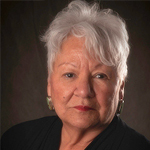 Dr. Maldonado Moore received her Master of Social Work degree from the University of Utah with a community organization concentration. She was awarded her PhD (2002) from Cornell University’s College of Human Ecology with a concentration in Planning & Evaluation, and minors in Cultural Anthropology and American Indian Studies. She has more than 20 years of practice experience in community-based development and has been teaching graduate and undergraduate courses in accredited social work programs for more than 15 years.
Dr. Maldonado Moore received her Master of Social Work degree from the University of Utah with a community organization concentration. She was awarded her PhD (2002) from Cornell University’s College of Human Ecology with a concentration in Planning & Evaluation, and minors in Cultural Anthropology and American Indian Studies. She has more than 20 years of practice experience in community-based development and has been teaching graduate and undergraduate courses in accredited social work programs for more than 15 years.
Dr. Moore is also a Licensed Master of Social Work (LMSW) with an emphasis on macro practice addressing community health prevention and intervention programs and social change processes. Her research interests include strategic planning and evaluation; cultural competency; diversity, equity, and inclusion initiatives; interprofessional education; and community health care. These interests have contributed to her developing special interest courses in substance misuse treatment, community-based research, and crisis intervention courses.
Currently, she is engaged in the development of new curricula and initiatives to support equity and inclusion across campus units at a liberal arts college in the southwest region of the United States. She serves as the co-chair for the President’s Council on Diversity, Equity, & Inclusion where she oversees the implementation of its strategic goals. Finally, Dr. Maldonado Moore is a commissioner of the National Council on Social Work Education Commission on Diversity and Social and Economic Justice.
Dr. Luis Vargas
 Dr. Luis Vargas is a part-time mental health consultant and a clinical psychologist retired from clinical practice. He received his B.A. in Psychology, from St. Edward’s University, a master’s degree in clinical psychology from Trinity University, San Antonio, Texas, and a Ph.D. in Clinical Psychology from the University of Nebraska-Lincoln, where his dissertation focused on Early Bereavement across the four modes of death in 3 racial/ethnic groups.
Dr. Luis Vargas is a part-time mental health consultant and a clinical psychologist retired from clinical practice. He received his B.A. in Psychology, from St. Edward’s University, a master’s degree in clinical psychology from Trinity University, San Antonio, Texas, and a Ph.D. in Clinical Psychology from the University of Nebraska-Lincoln, where his dissertation focused on Early Bereavement across the four modes of death in 3 racial/ethnic groups.
He completed his pre-doctoral internship in clinical psychology at the Neuropsychiatric Institute (NPI), UCLA Center for Health Sciences, Los Angeles, California, and a post-doctoral fellowship in forensic psychology at the University of Southern California, Institute of Psychiatry, Law and Behavioral Science. He is a Fellow of the American Psychological Association (Divisions 12, 37, and 45) and a Fellow of the Association of State and Provincial Psychology Boards.
He served as the director of the clinical psychology internship program in the Department of Psychiatry at UNM School of Medicine for fourteen years. He served six years as the Chair of the New Mexico Board of Psychologist Examiners. Many of Dr. Vargas’ clinical and scholarly work focused on providing culturally responsive services to diverse children and adolescents, particularly in Latino communities. His dedication to education has been recognized with multiple teaching awards from the UNM School of Medicine, Department of Psychiatry.
Dr. Arturo Gonzales
 Dr. Gonzales is a highly experienced professional with a strong background in Primary Care, Mental Health, and Substance Abuse treatment. After 17 years as the Executive Director of the local Federally Qualified Health Center (FQHC), he led the Administration and implementation of the SBIRT program in New Mexico, overseeing the development of 35 integrated SBIRT and medical sites between 2004 and 2008. These sites included 20 FQHCs, 10 school-based health clinics, and 3 public health field offices.
Dr. Gonzales is a highly experienced professional with a strong background in Primary Care, Mental Health, and Substance Abuse treatment. After 17 years as the Executive Director of the local Federally Qualified Health Center (FQHC), he led the Administration and implementation of the SBIRT program in New Mexico, overseeing the development of 35 integrated SBIRT and medical sites between 2004 and 2008. These sites included 20 FQHCs, 10 school-based health clinics, and 3 public health field offices.
Dr. Gonzales was responsible for recruiting, training, and supervising over 24 licensed behavioral health counselors across these locations. Additionally, he spearheaded the introduction of SBIRT telehealth services within these sites. He served as an advisory technical consultant to the SAMHSA Administrator on its National Advisory Committee.
For more than 25 years, Dr. Gonzales has co-hosted “Health Para Todos,” a renowned talk show dedicated to addressing various health issues in New Mexico. Currently, he is serving as an organizational consultant to the National Latino Behavioral Health Association (NLBHA).
10:15 am – 10:30 am
Morning Break – Regency Foyer
10:30 am – 12:30 pm
Concurrent Strands
Live Oak – Hill Country Level
Facilitator – Dr. Luis Garcia
Note Taker – Jorge Gonzalez, BA
One of the challenges in behavioral health is to engage and provide competent Hispanic/Latino/a in the field of behavioral health to best serve the Hispanic/Latino/a population. Recruitment and retention present an ongoing, ever increasing, challenge to organizations serving those in need. It is imperative that the behavioral health community take the lead in this process. In this strand, participants will be asked key questions regarding research about the Hispanic/Latino/a behavioral workforce, recruitment, professional development, and retention. Identifying creative strategies to address these challenges will be an important segment of this strand.
Pecan – Hill Country Level
Facilitator – Dr. Ruben Lozano
Note Taker – Rose Nava, LMSW, MPH
While the movement toward implementing evidence-based programs (EBP) has been important in the effort to provide clients with programs that have demonstrated efficacy. Concerns have been expressed about how EBPs are developed and their applicability to diverse populations. In this strand we will explore the pros and cons of programs that purport to be generalizable to all populations regardless of ethnicity, gender, or culture; and culturally adapted programs not originally intended for a particular cultural group.
Blanco/Llano/Pecos – Hill Country Level
Facilitator – Christina Montoya, PLCSW, BSC, CJSOT
Note Taker – Ana L. Chavez-Mancillas, DSW, MSW, DVAT
Evidence-based programs are one facet of evidence-based practice. A continuum of care involves the interaction and coordination with and between multiple agencies and organizations. This begins with the selection of evidence-based programs. Implementing these programs and engaging in an evidence-based practice across the continuum of care with Hispanic/Latino/a populations is a complex process. In this strand participants will discuss when the recipient populations served are very diverse, how do you address the adoption of an evidence-based program that may be appropriate to one group of recipients but not others?
12:30 pm – 1:30 pm
Regency FGH – Ballroom Level
Dr. Lisa Cacari-Stone
Professor, UNM College of Population Health
Executive Director/PI – Transdisciplinary Research, Equity & Engagement Center
 Dr. Cacari Stone has dedicated over 30 years of public health leadership, practice, and policy work. She is the founding Principal Investigator and Director of the Transdisciplinary Research, Equity, and Engagement Center for Advancing Behavioral Health (TREE Center) which is one of twelve research centers of excellence funded by the National Institute of Minority Health and Health Disparities (NIMHD Grant # U54 MD004811-08). She has extensive experience working as part of a multidisciplinary team and working effectively with persons from diverse cultural, social, and ethnic backgrounds in the roles of Assistant Director with the Robert Wood Johnson Center for Health Policy and Director of the Community Engagement Core (NM CARES Health Disparities Center/P20). She is a thought- leader in health equity and has published numerous peer-reviewed policy briefs, public reports, and papers. Her science and policy work is supplemented with 15 years of as a behavioral health specialist, state health care administrator, and licensed marriage and family therapist. She is an expert member of the research group with the U.S.-Mexico Border Health Commission, a member of the National Hispanic Science Network, a board member of the Prevention Institute (Oakland), and a previous WK Kellogg Fellow in Health Equity and Policy. In 2019, she received the Faculty Research Excellence Award in Population Health Science from the University of New Mexico Health Sciences Center.
Dr. Cacari Stone has dedicated over 30 years of public health leadership, practice, and policy work. She is the founding Principal Investigator and Director of the Transdisciplinary Research, Equity, and Engagement Center for Advancing Behavioral Health (TREE Center) which is one of twelve research centers of excellence funded by the National Institute of Minority Health and Health Disparities (NIMHD Grant # U54 MD004811-08). She has extensive experience working as part of a multidisciplinary team and working effectively with persons from diverse cultural, social, and ethnic backgrounds in the roles of Assistant Director with the Robert Wood Johnson Center for Health Policy and Director of the Community Engagement Core (NM CARES Health Disparities Center/P20). She is a thought- leader in health equity and has published numerous peer-reviewed policy briefs, public reports, and papers. Her science and policy work is supplemented with 15 years of as a behavioral health specialist, state health care administrator, and licensed marriage and family therapist. She is an expert member of the research group with the U.S.-Mexico Border Health Commission, a member of the National Hispanic Science Network, a board member of the Prevention Institute (Oakland), and a previous WK Kellogg Fellow in Health Equity and Policy. In 2019, she received the Faculty Research Excellence Award in Population Health Science from the University of New Mexico Health Sciences Center.
1:30 pm – 3:30 pm
Concurrent Strands
Live Oak – Hill Country Level
Facilitator – Dr. Yolanda Rodriguez
Note Taker – Elizabeth Rodriguez-Diaz, BA
There are some challenges involving the legitimacy of Hispanic/Latino/a researchers such as non-supportive academic cultures or peer-reviewed journal priorities. Nevertheless, there are emerging and established scholars generating innovative research and practices to address behavioral health disparities among Hispanic/Latino/a groups and communities. This strand investigates these advances and seeks to understand gaps in knowledge and structural systems which can contribute to understanding such areas as how culture, language, and trauma influences health choices.
Pecan – Hill Country Level
Facilitator – Lindsay Malhotra, MSW, LCSW, LCDC, PSS
Note Taker – Cynthia Lentini, MS
The COVID-19 Pandemic shifted human relationships, interactions, and lifelong goals. In addition, environmental, socio-political, and economic dimensions affected the quality of life with all people and communities. Public schools and higher education systems especially experienced an increase in behavioral health issues during and following the return to campus. Developing social emotional learning values and practices for positive outcomes, including strong identities and wellness, requires skills and knowledge. Positive outcomes promote healthy relationships in higher education and communities that influence academic success. This strand will identify research needs to identify SEL issues among Hispanic/Latino/a students as well as skills and resources needed to assist Hispanic/Latino/a students.
Blanco/Llano/Pecos – Hill Country Level
Facilitator – Dr. Rocky Romero
Note Taker – Raquel Guzman, MSW, LMSW
Hispanic/Latino/a elderly, DACA and undocumented immigrants, homeless, LGBTQ+ populations, mixed-race sub-populations, women, and youth are vulnerable and with prevention and intervention programs can become resilient. Historically, these populations experience significant rates of poor mental health, stress, substance use disorders, suicidality, stigma and a decreased sense of well-being. Resiliency factors such as family support, community resources, and social support systems are assets.
Specifically, there is a dearth of literature and research studies with, by, or for these Hispanic/Latino/a subgroups. Furthermore, existing studies focusing on Hispanic/Latino/a populations are often critiqued as being methodologically week yet promising. This strand explores why Hispanic/Latino/a research is limited in these areas and how Hispanic/Latino/a researchers can address these research inequities.
3:30 pm – 3:45 pm
Afternoon Break – Regency Foyer
3:45 pm – 5:00 pm
Closing Session – Regency FGH – Ballroom Level
Dr. Cristina Rabadan-Diehl
Bilingual Substance Use Disorders Technical Advisor and International Consultant Cristina Rabadan Consulting, LLC
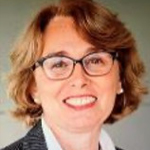 Dr. Cristina Rabadán-Diehl is a scientist and public health professional with almost 40 years of experience in research and policy. She spent over two decades at the NIH and U.S. Department of Health and Human Services (DHHS). She is a former George Washington University Professor and lectures often at other institutions like the Johns Hopkins University, School of Public Health.
Dr. Cristina Rabadán-Diehl is a scientist and public health professional with almost 40 years of experience in research and policy. She spent over two decades at the NIH and U.S. Department of Health and Human Services (DHHS). She is a former George Washington University Professor and lectures often at other institutions like the Johns Hopkins University, School of Public Health.
She is currently a bilingual technical advisor on substance use disorders and partners with governments, non-government, and community-based organizations to ensure that linguistically appropriate and culturally competent resources are available, especially to Hispanic/Latino communities in the United States. Dr. Rabadán-Diehl is a member of the SAMHSA (Substance Abuse and Mental Health Services Administration) National Advisory Council and the Working Group on
“Partnership for Equity: Hispanic/Latino Populations”, as well as the National Latino Caucus for Public Health (LCPH).
She is also an advisor to Shatterproof, the National Latino Behavioral Health Association, and the Hispanic/Latino Behavioral Health Center of Excellence. At the local level, she works with the Montgomery County, Maryland (MoCo) Department of Health and Human Services and Identity, a Latino community-based organization. She is a former member of the MoCo Alcohol and Other Drug Abuse Advisory Council (AODAAC) and the former chair of their Prevention Committee.
Dr. Ruben J. Lozano
NLBHA Board President
 Dr. Lozano retired from public service in 2005 as Deputy Director of the State Department of Mental Health where he spent 27 of his 30-year career with the State of California. As Deputy Director, he was responsible for overseeing the development of Cultural Competence Standards for Mental Health Services provided by California’s 58 Counties. He then created Teams that reviewed each County for compliance with those standards. Dr Lozano was also responsible for Teams performing Fiscal Audits, the Pre-Admission Screening and Resident Review, and Licensing and Certification of Facilities providing mental health services. He continues to work as a contract Pharmacy Supervisor in the Department of State Hospitals-Napa Facility.
Dr. Lozano retired from public service in 2005 as Deputy Director of the State Department of Mental Health where he spent 27 of his 30-year career with the State of California. As Deputy Director, he was responsible for overseeing the development of Cultural Competence Standards for Mental Health Services provided by California’s 58 Counties. He then created Teams that reviewed each County for compliance with those standards. Dr Lozano was also responsible for Teams performing Fiscal Audits, the Pre-Admission Screening and Resident Review, and Licensing and Certification of Facilities providing mental health services. He continues to work as a contract Pharmacy Supervisor in the Department of State Hospitals-Napa Facility.
Fred Sandoval, MPA
NLBHA Executive Director
 Fred has over 34 years professional experience in health and human services. Fred served as the President of the National Latino Behavioral Health Association, where he currently works as the Executive Director. He served as a member of the SAMHSA Health Care Reform Community of Practice advising on effective outreach and enrollment of uninsured Latinos. Fred served on the National Council of La Raza Affiliate Council. He was formerly appointed by Governor Bill Richardson as the Deputy Secretary of Health and Income Support Division Director for the State of New Mexico and was the alternate to the U.S.-Mexico Border Health Commission. He served as First Vice President of the National Alliance on Mental Illness (NAMI) in Arlington, VA. Fred worked as the Human Service Planning Supervisor for the City of Santa Fe overseeing CDBG and human services programs. Fred met with and participated in President George W. Bush’ announcement of the New Freedom Commission in Albuquerque, NM and served on the National Latino Mental Health Congress during the President Clinton administration. He has served on numerous national, regional and community boards, councils, commissions and committees. He is a nationally recognized trainer and consultant on culturally informed practices. He received his Masters in Public Administration from Northern Arizona University in 1992 and his Bachelors of University Studies from the University of New Mexico in 1980. He has received the SAMHSA Administrator Award, the Cerro Grande Fire Hero Award, the Con Alma Health Foundation Health Hero Award and numerous national recognition for his work in and with Latino communities. His technical skills include data research and analysis, program evaluation, planning and community needs assessments, policy research and analysis, program development, budget preparation, business planning, environment scans, survey development & administration, and technical report writing.
Fred has over 34 years professional experience in health and human services. Fred served as the President of the National Latino Behavioral Health Association, where he currently works as the Executive Director. He served as a member of the SAMHSA Health Care Reform Community of Practice advising on effective outreach and enrollment of uninsured Latinos. Fred served on the National Council of La Raza Affiliate Council. He was formerly appointed by Governor Bill Richardson as the Deputy Secretary of Health and Income Support Division Director for the State of New Mexico and was the alternate to the U.S.-Mexico Border Health Commission. He served as First Vice President of the National Alliance on Mental Illness (NAMI) in Arlington, VA. Fred worked as the Human Service Planning Supervisor for the City of Santa Fe overseeing CDBG and human services programs. Fred met with and participated in President George W. Bush’ announcement of the New Freedom Commission in Albuquerque, NM and served on the National Latino Mental Health Congress during the President Clinton administration. He has served on numerous national, regional and community boards, councils, commissions and committees. He is a nationally recognized trainer and consultant on culturally informed practices. He received his Masters in Public Administration from Northern Arizona University in 1992 and his Bachelors of University Studies from the University of New Mexico in 1980. He has received the SAMHSA Administrator Award, the Cerro Grande Fire Hero Award, the Con Alma Health Foundation Health Hero Award and numerous national recognition for his work in and with Latino communities. His technical skills include data research and analysis, program evaluation, planning and community needs assessments, policy research and analysis, program development, budget preparation, business planning, environment scans, survey development & administration, and technical report writing.
Dr. Ruben J. Lozano
NLBHA Board President
 Dr. Lozano retired from public service in 2005 as Deputy Director of the State Department of Mental Health where he spent 27 of his 30-year career with the State of California. As Deputy Director, he was responsible for overseeing the development of Cultural Competence Standards for Mental Health Services provided by California’s 58 Counties. He then created Teams that reviewed each County for compliance with those standards. Dr Lozano was also responsible for Teams performing Fiscal Audits, the Pre-Admission Screening and Resident Review, and Licensing and Certification of Facilities providing mental health services. He continues to work as a contract Pharmacy Supervisor in the Department of State Hospitals-Napa Facility.
Dr. Lozano retired from public service in 2005 as Deputy Director of the State Department of Mental Health where he spent 27 of his 30-year career with the State of California. As Deputy Director, he was responsible for overseeing the development of Cultural Competence Standards for Mental Health Services provided by California’s 58 Counties. He then created Teams that reviewed each County for compliance with those standards. Dr Lozano was also responsible for Teams performing Fiscal Audits, the Pre-Admission Screening and Resident Review, and Licensing and Certification of Facilities providing mental health services. He continues to work as a contract Pharmacy Supervisor in the Department of State Hospitals-Napa Facility.
5:00 pm – 6:30 pm
- Reception – Regency Ballroom – Ballroom Level
- Silent Auction – Medina – Ballroom Level

